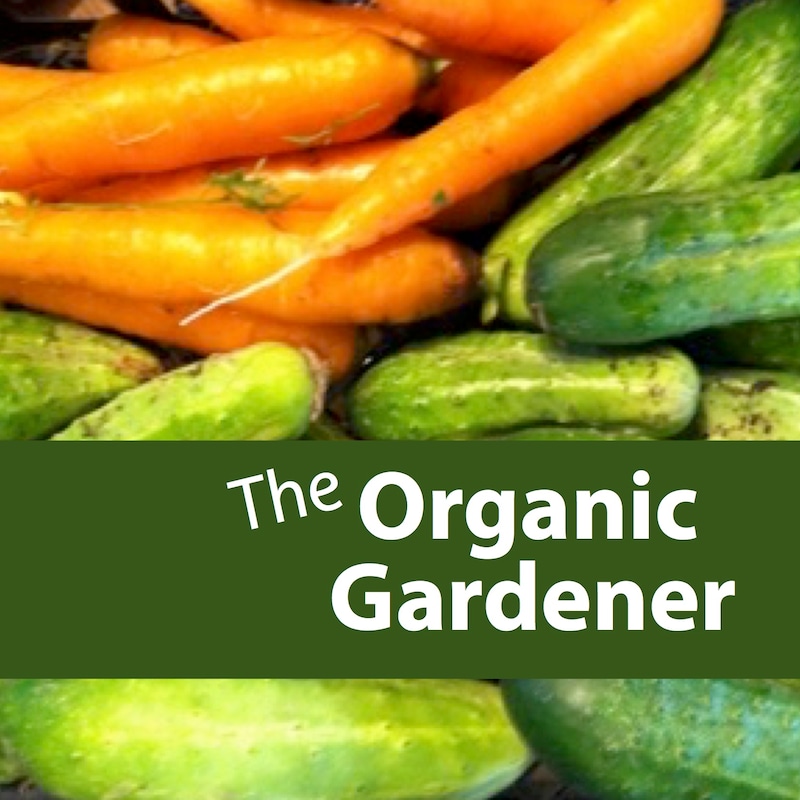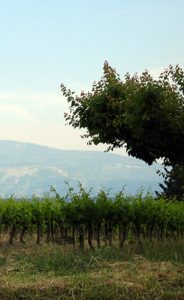
Shownotes
Tom Natan from First Vine Wine Imports has been very patient with my schedule and we are talking in August and I am just posting it today in February!
Thanks I’ve been listening to a few of the podcasts and its been really fun.
I’m gonna give the credit to my guests because I love podcasting. It’s so great to meet people who think like I do. It just seems like I have been meeting a lot of different people this year. I am in fourth grade this year and the kids just jumped on the composting. Our garden is in full bloom so I’ve been bringing in dragon’s tongue beans the kids have been loving and carrots and apples and zukes for staff and parents!
Tell us a little about yourself.
A chemical engineer by training after college I worked for a food product development company. So my work history at least initially was always about food and I’ve always loved cooking.
a little bit of knowledge
My dad came to US when he
taught us a little bit about it. He was also kind of a beer person. So it was kind of up to me to educate myself. After grad school I ended up in DC. I was working ofr and environmental consulting firm and then I worked for an environmental advocacy organization
I met people all over the world interested in the environment and
I met a woman who was married to a vineyard in Provence
went to visit in 2002
don’t make it to the US. I don’t think people aren’t aware of how much wine is made all over the world.
In the Rhone Valley in SE France
6000 vineyards in an area the size of the boroughs of Manhattan. The majority of it isn’t gonna make it over here. The idea percolated for a lot of years to get the wines over
We started with 7 wines from 4 producers and it was really fun to get those first shipments. To see those pallets coming in. Then you have to figure out a way to sell them. The whole process of importing wine is full of admin details. A lot of people would find really tedious, but I love that part of the job. I’m not a natural born salesman so that is the toughest part for me
It allowed me to combine my education and work background to doing something completely different
environmental work
As everyone is aware politics is a cyclical thing. You work hard to get something done and the admin changes, they can for the most part can take a lot of it away
directing agencies not to enforce or not directing resources towards projects. Once something gets taken away it takes 2xs as long to get it back.
It was time to get out of that kind of merry-go-ground
Im kind of a bitter and cynical person and that was just making me more bitter and cynical.
by and large nobody’s in the wine business because they have to be
- make the wine
- families have been making wines for generations
- people who drink it obviously they like it
The importer to consumer chain it’s filled with lots of nice people
I’ve really enjoyed it so far
My background has allowed me to delve into
- fermentation I had to study as an
- undergrad
- also theories behind the agriculture
- how they relate to the kinds of foods that we eat and know
I import wines from
- france
- spain
- italy
definition of organic is different
- biodynamic
- sustainable
more and more as how food is produced
probably interested in how their wines are produced.
probably 5-6 years ago, I’m not sure people wouldn’t have given it that much thought
go to the farmer’s market buy some tomatoes and they shake the farmer’s hand at the farmer’s market and go home pick a bottle of wine from their wine rack and not think so much about how that wine was produced. That’s really changed a lot
wine industry
big industry next door in VA
see how wines are made
Laws in DC don’t allow wineries to pour wine at farmer’s markets. You can’t get a permit to sell wine at farmer’s markets
great way to learn more too. In the meantime I’m
- blogging
- talking to people
- talking to customers
wine is an agriculture product.
Isn’t it that the 27% of the chemicals in France are on the grapes.
yes and no
first of all
when we say pesticides
pesticides are insecticides
cover a whole range of chemicals
Most that get used on grapes at least outside the US are fungicides
big beautiful grape vines with their big beautiful leaves
if conditions are pretty wet then if they don’t dry out properly, if the grape growers don’t separate the leaves so they don’t get stuck together you can get a lot of fungus growing.
So in very limited circumstances at least in France the growers are allowed to use a fungicide application that is closely regulated
if they don’t use it, usually a copper sulfate product, they have to get out their and separate the leaves by hand if they have had bad weather you can imagine how difficult that is to do when you have an enormous vineyard
By and large they are not allowed to
- fertilize
- insecticides
- or irrigate
the idea
importantly
they are not allowed to irrigate
grape vines have enormously long roots
as they
they are not allowed to surface irrigate or even drip irrigate in most cases if they do that.
How come is there a water shortage?
Because they’ve determined it makes better wine. If the plants are stressed and the roots have to go way way down into the soil then you get more soil contact with the roots
they believe that’s what gives each village
Terroir
I can taste enormous variation
similar
terrain and soil
grapevines getting roots to find soil and water
There certainly are places in France where there are water shortage
But you wouldn’t be able to grow anything else in it for centuries
Some techniques were perfected by the knight’s back in the 12th century.
long-standing
codified in the early 20th century..
what grapes would go into wines with particular names
Ag processes got more codified after WWII
WWI was extremely destructive to grape vines in France
WWII was less so
after WWII they really started focusing on higher quality production and minimal chemical intervention.
crops of grapes
Youre right tho there is still a lot of pesticide use in France, mostly fungicide and the wine making sector did account for almost 20% of those chemicals.
They’re trying to bring it down and they are experimenting with various ways to do that
Tougher process with some of them. In some cases you have centuries of tradition.
If they have centuries of tradition that’s before what we’re worried about today.
they’ve always
we’ve known about anti-fungal compounds for many decades
back into the 19th century at least they knew about
- copper sulfate
- other chemicals
- that they started using on grape vines
They would have planted them differently .
part of the issue now
most with big ag
the density of planting encourages all kind of undesirable growth. That applies somewhat to grapes
- trellis to keep vines off the ground
- techniques they wouldn’t have had in the 19th century
I have a friend who is an agronomist who is studiing the old way of planting in grape vines which was
- planting in clusters
- planting relatively far apart
As apposed to modern way
- poles and metal wires
- vines attached to the trellis’
Spain is making that kind of tradition now
it is having an affect on migratory birds. there are all sorts of things to consider about changing the way you grow wine.
Let’s talk about how you get to pick the places you get your wine.
I’m lucky enough to know people that do some scouting for me in various places.
I think people picture me as a wine importer that I arrive and get in a car dirt road to a battered sign and the wine maker carrying his baguette comes out to meet me.
First I get recommendations for friends
wine shows
- invite importers to come and taste
- lucky to go to a number of those
- find something you like, find the price is right
- by and large
- latest producers have been at wine shows
still on the lookout
visit some place that is good
not available in the US
it might take a few years before I am able to taste it or bring it over here
there is luck involved definitely there’s also a lot of scouting
I drink a lot of wine, do you want to talk about different flavor wines? I kind of like dryer wines, not fruity wines.
The thing to remember is there’s no right thing. People get nervous because they think they are gonna get judged how they taste but if you like it that’s all that matters.
on their sweetness level
used to wine being named for the grape it contains
75% that grape can call it by that name
I like cabinet sauvignon
issue where it’s grown
The hotter the climate more intense it’s going to be. Once you know where it’s grown in Europe further and further south the wines get more robust. If you are looking at wines from southern Italy the southern wines are going to be more robust and fruitier.
As far as dryness goes it has to do with how they make the wine
you have the sugar content, the sugar gets turned into alcohol
stop fermentation
you’re gonna have more sweetness
- more sugar
- more alcohol
- farmer’s have to decide to pick grapes based on sugar content because if it gets to high they might not be able to ferment all the sugar into alcohol.
those are considerations
it really depends what you like
certain truisms
US wines tend to be fruitier then wines from Europe.
They do?
question of taste and also farming technique.
Zinfandel is the same grape as Primitivo in Italy but Primitivo tastes different because of the growing conditions
European styles of wine tends to taste earthier and less fruitier.
This is fascinating.
It’s really a question of preference and tradition for them.
I think you will find in the US we don’t have the same way of growing grapes
Napa and Sonoma valleys soil is beautiful. You could grow anything there. Most choose to grow wine because the soil is good for it.
When you have really really good soil, you don’t have to go as far down to get which means you don’t get quite as much earthiness which means the won’t be as earthy tasting.

Zinfandel
- might do a little irrigation
- wonderful soil
You get a really fruity taste to your zinfandel. It doesn’t mean it’s gonna sweet when I wine is fruity we have a perception of sweetness, might taste a little jammy.
If you go east to the foothills of the Sierra Nevada mountains, you have terrain conditions more like the wine regions in Europe. A lot of the farmers in the foothills there, don’t use any irrigation.
- no irrigation
- complete dry farming
- more like wines from Europe
Depends on where you grow
- hotter
- fruitier it could be
Sicilian wine
...

